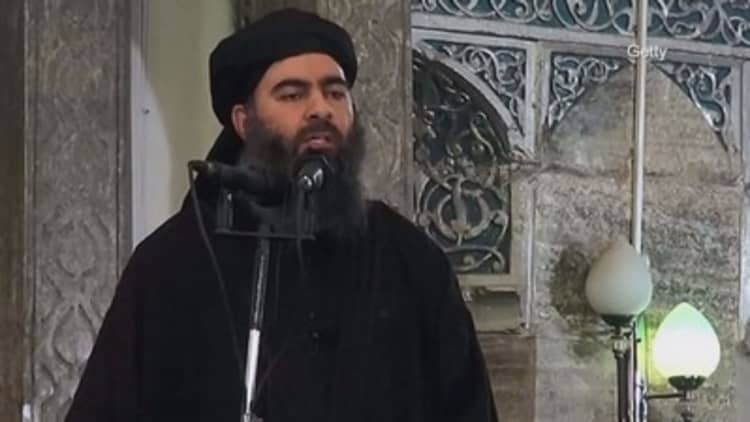
The Russian Defense Ministry believes the leader of the Islamic State militant group, Ibrahim abu Bakr al-Baghdadi, may have been killed by one of its air strikes on the Syrian city of Raqqa.
The ministry said Baghdadi and as many as 330 other fighters had been killed as a result of an air strike on the city at the end of May.
"According to the information that is being checked via various channels, Ibrahim abu Bakr al-Baghdadi, the leader of ISIS was at the conference and was liquidated by the strike," Russia's Defense Ministry said via a Facebook post, according to a translation.
The claim has not yet been verified.
Despite several previous reports of Baghdadi's death, the statement from Moscow's Defense Ministry is the first time Russia has reported the killing of the IS leader.
The ministry said an air strike killed 30 field commanders and up to 300 militants during an ISIS "meeting council" on May 28, near to the southern outskirts of Raqqa.
Islamic State's de facto capital, Raqqa, in Syria is reportedly surrounded to the north, east and west by approaching rebel and Kurdish forces, supported by the U.S.-led coalition.
The Russian Defense Ministry said they had informed Washington of the strike. Colonel John Dorrian, a spokesperson for the U.S.-led coalition told the BBC he had not been able to confirm whether Baghdadi had been killed.
There has been no official comment from the Syrian government.
Baghdadi garnered international prominence in June 2014 when, in his only public appearance to date, he was shown delivering a sermon in Mosul after ISIS had taken control of the city.
Reuters had reported that Baghdadi was believed to be "hiding in thousands of square miles of desert" until recently.


